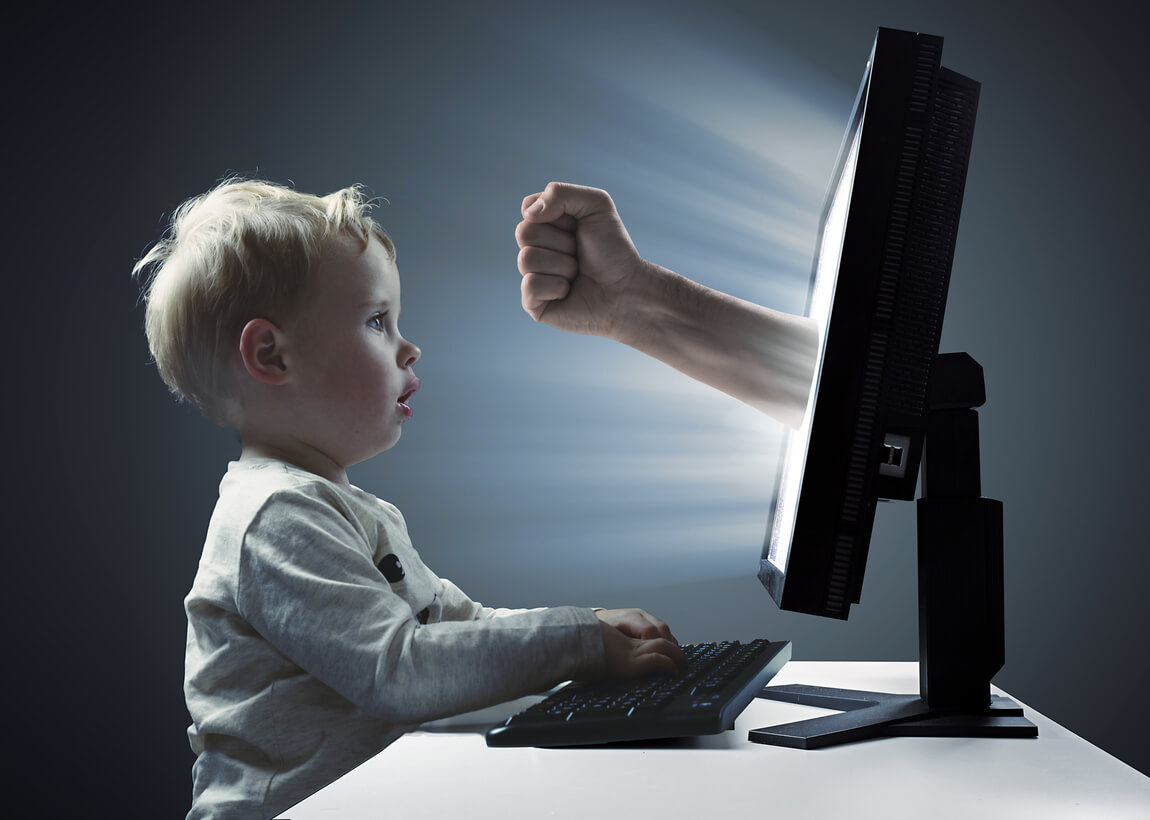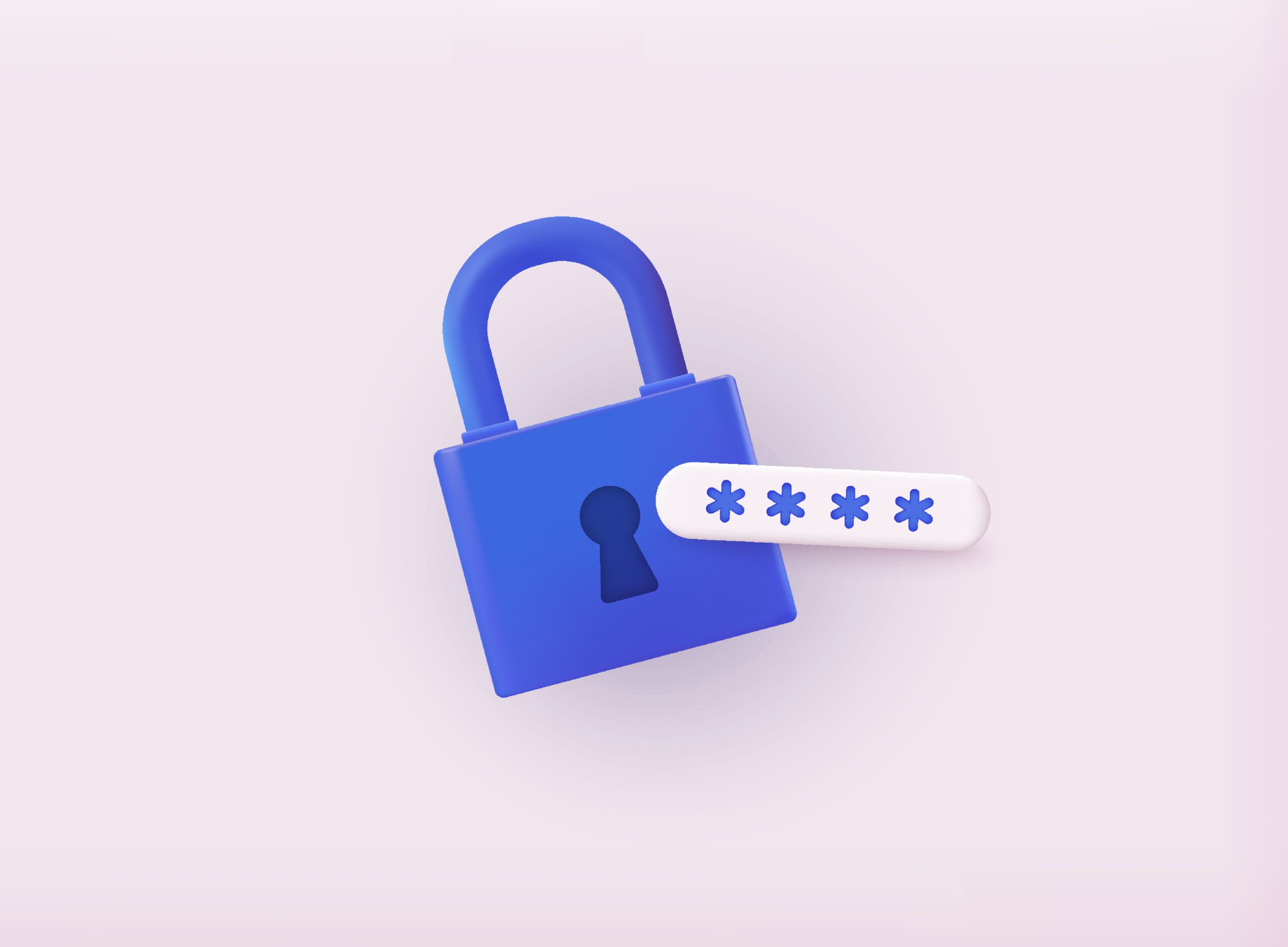10 Dangers Of The Internet For Kids: Staying Safe Online

With the proliferation of the internet, online privacy issues are becoming increasingly common. The internet is filled with online dangers, and, as a parent, you need to prioritize teaching your children about internet privacy and safety.
Allowing a child to surf the web unsupervised is exponentially more dangerous than allowing unlimited TV time. While both are detrimental to their mental and emotional development, online threats outweigh the dangers of TV by far.
Top Dangers Of The Internet For Kids
In this article, we are going to list the 10 biggest online dangers for kids, how much damage they can cause, and what parents can do to keep their children safe.
1. Talking To Strangers
It goes without saying that children shouldn’t talk to strangers. This is one of the basic rules that kids learn, right? It’s fair to assume that children know that they shouldn’t talk to strangers…in real life. On the street, in the bus, in a shop, yes, absolutely, but what about online?
So much of what captivates kids online these days involves talking to strangers. For instance, YouTube videos come with comment sections. Same with games. Most of them have a forum where players can interact. Both of these scenarios entail talking to strangers. Why is talking to strangers online dangerous for kids?
The Hard Reality Of Online Dangers Statistics
Because children can be easily manipulated by older people and end up in real danger.
According to the National Center for Missing and Exploited Children, there was a 97.5% increase in online enticement reports in 2020. And 98% of the reported offenders were people that victims have never met offline before.
Statistics also report that the most common tactic that predators use to entice kids is by pretending to be much younger than they are to earn their trust, and then developing a relationship by discussing “common” interests.
Once the children are comfortable, the predators begin asking for things. They usually start small, with personal or delicate information, then gradually move on to bigger requests, such as pictures — often sexually explicit in nature.
In some cases, predators get to the point where they request in-person meetings with the kids. Since there is already a relationship between them and the children trust them, in a lot of cases the kids lie to their parents and go see their internet friends.
That’s how talking to strangers online can lead to children being abducted, abused, and even raped. So, parents need to expand the no talking to strangers rule to the online world as well and treat it very seriously because it is the biggest online danger of them all.
2. Having a Profile On Social Media
Second on the list of the dangers of the internet for kids is social media. Social media is a lot of fun, but it’s definitely not a safe place for kids. That’s because it opens them to a whirlpool of online dangers — from getting an improper image of themselves and of the world around them all the way to cyberbullying and exposure to predators.
As relayed in the 2020 documentary The Social Dilemma, Facebook, Twitter, Instagram, Tik-Tok, and other social media platforms create a distorted image of people and society.
While this can be harmful to adults, it can be extremely dangerous for children because they are exponentially more susceptible to these lies. Moreover, social media makes it easy for kids to talk to people who might want to manipulate them.
Parents need to monitor their kids’ online activity and check they don’t have secret profiles on social media.
If you need help, our team at Internet Privacy can help you search for all the information your child might have shared online, remove it, and teach them how to stay safe online.
3. Sharing Personal Information
Another example of the lessons children must learn not only in real life — but also in the digital space.
Children might know that they shouldn’t share their address with strangers, but do they know it’s just as dangerous to share it online?
Whether it’s sharing personal information in a comment, post, or by completing an online account, sharing personal information online can be extremely dangerous. Especially when done by a child! People with other malicious intents could use that information to get to the kids or for identity theft.
At Internet Privacy, we specialize in tracking any information you or your family members might have shared online, and help you remove it to keep them safe.
4. Sharing Pictures Or Videos Of Themselves
Kids can be easily tempted to share pictures or videos of themselves, especially on social media platforms. But keeping track of these posts is essential if you want to ensure your child is safe online.
If you don’t know all your child’s accounts and you don’t check what they post, they might fall into the hands of predators. A photo of a little boy smiling or a video of a girl dancing look very different to a pedophile. Add in the messaging service, and the situation can escalate very quickly.
But pedophiles are not the only threat to your child’s content online.
There’s also cyberbullying, which can have devastating effects on mental health development. Mean comments on a picture they’ve posted can be hurtful for a child, so this needs to be taken seriously.
5. Watching Inappropriate Content
Another huge online danger that kids face nowadays is having access to inappropriate content for their age. While pornography might come to mind, it is not the only type of damaging content for children. The internet is full of disturbing pictures and videos that could shock children and cause them significant psychological damage.
From animal cruelty to torture and virtually any other type of violence you can think of, it’s all up on the World Wide Web. Children can get to it easily unless parents set up safe search filters and child accounts on all the profiles the kids might use online. Such scarring events can easily be prevented, but it does take some effort on the parents’ part.
6. Making Online Purchases
Kids need to know that online purchases must be made by adults only. Buying online has gotten easier over the years, and kids learn very quickly, especially if there’s an incentive involved, such as a new toy they found online.
Parents must keep their credit card information private and ensure that their children have no access to it.
Moreover, advanced payment authentication should be set up for all cards, so the parent’s confirmation remains the only way to complete a transaction. Another thing parents should watch out for is saving their credit card info on websites. Should the child access that website with their account, making the purchase will be all too easy.
7. Being Cyberbullied Or Becoming a Cyberbully
As mentioned above, cyberbullying can have very serious implications on a child’s mental health development. Parents might downplay it because something that doesn’t happen in “real life” can’t hurt kids, right?
Cyberbullies often have the same idea and, as a consequence, dial up the level of cruelty. When bullying occurs, both the bully and the child being bullied need help.
Even if it happens online, it can still have a huge negative impact on children’s self-image while, at the same time, it can be a cry for help from the child doing the bullying. Parents need to be aware of both and teach their kids about the implications of this seemingly innocent crime.
8. Clicking On Suspicious Links
Phishing and ransomware are huge threats nowadays, with a boom in cases since the beginning of the COVID-19 pandemic.
Kids need to learn about internet safety and what type of links they should never click on. There are so many scams out there — often able to fool adults — and children are far more likely to fall right into the trap.
One of the gold lessons of staying safe online is never believing you’ve won something you haven’t knowingly participated in. Not clicking on a popping banner saying you’ve won might seem obvious to an adult, but it might not to a child. So parents need to teach them about these online dangers.
9. Downloading Suspicious Software
Yet another important rule for kids to follow during their time online is to never download any type of software without the explicit consent of adults.
Cyber attacks are a real danger in 2021, so kids need to know about these and learn what can happen if they download suspicious software.
10. Sharing Personal Information About Their Parents
While sharing information about themselves online exposes kids to a wide range of dangers, so does sharing information about their parents or family. Online predators could be looking to get this type of info out of interacting with the children — and they can be very persuasive.
Another dangerous situation is when children set up fake accounts using their parents’ pictures and information. This could put the children in danger, as well as their parents.
Here at Internet Privacy, we can help parents avoid this by looking up their personal information online and taking it down for good. Contact us today for more information, and let us help your family stay safe.
If you enjoyed our article on online dangers kids face nowadays, you might also like:






